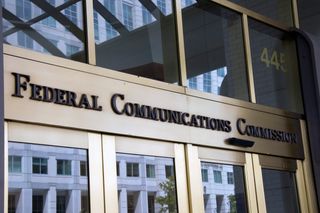FCC Provides Flexibility for Sign Language Interpreters

Driven by the widening coronavirus crisis, the FCC has provided temporary waivers to help American Sign Language interpreters telework in order to maintain the telecommunications relay services (TRS)--in this case video relay service--that help the deaf, hard of hearing, deaf/blind and with speech disabilities, to communicate.
The FCC also provided waivers of other TRS rules to allow interpreters to continue to provide the services to hundreds of thousands of people who need them.
"At a time when Americans are focusing on reducing in-person interactions, the need for reliable communications services is critical," said Patrick Webre, chief of the FCC’s Consumer and Governmental Affairs Bureau. "This is no less true for Americans with disabilities, and that is why we quickly and proactively granted these waivers. We will continue to look for ways to help ensure accessible communications are available during the pandemic,” he said.
The FCC has already adopted rules that would allow for more at-home translation but those rules have not yet gone into effect, necessitating the temporary waivers of the existing rules.
Multichannel Newsletter
The smarter way to stay on top of the multichannel video marketplace. Sign up below.
Contributing editor John Eggerton has been an editor and/or writer on media regulation, legislation and policy for over four decades, including covering the FCC, FTC, Congress, the major media trade associations, and the federal courts. In addition to Multichannel News and Broadcasting + Cable, his work has appeared in Radio World, TV Technology, TV Fax, This Week in Consumer Electronics, Variety and the Encyclopedia Britannica.

